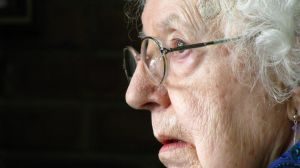Eating Disorders In Elderly Patients

The Experience
Elderly patients with eating disorders will generally refuse meals by saying they’re too hungry or feeling ill. They might have a distorted view of their bodies, have difficulty expressing their feelings, have family conflicts and engage in secretive behavior to hide their habits. As a result, the elderly might engage in purging behaviors – unlike the younger demographic, elderly patients might use laxatives instead of engaging in vomiting.
Elderly patients also face unique challenges at their age, and certain circumstances may act as contributing factors to their illness. The ability to consume food may be a result of infections, bowel problems, loose dentures, swallowing problems, medications that reduce appetite, memory loss or other illnesses. The inability to grocery shop, cook meals or feed themselves could also be a contributing factor.
Why do the elderly develop eating disorders?
The elderly develop eating disorders for a number of reasons. These can range anywhere from loss of independence to the death of loved ones and a feeling of isolation. Refusing food can be a way of regaining control, or passively ending their own lives. Other reasons might include undiagnosed depression, unresolved past issues, stress, attention seeking, etc. Remission can also occur in elderly people who have previously experienced the disorder.
Signs and Symptoms
Inadequate nutrition, especially for the elderly, can result in falls, memory deficits, cognitive decline, slow healing, infection and disorientation. Signs of an eating disorder can include depression, loss of appetite, weight loss, fixation on death, unexplained weight loss and chronic dizziness. Unused food and unopened packages of food in the fridge are also signs of an eating disorder.
The Solution
Working through psychological issues can be effective with elderly people. They might be encouraged to attend social activities, eat healthy meals prepared for them, dine with others and participate in a physical rehabilitation program to enhance mobility and endurance.
Source: Today’s Dietitian
 Eating Disorder Self Test. Take the EAT-26 self test to see if you might have eating disorder symptoms that might require professional evaluation. All answers are confidential.
Eating Disorder Self Test. Take the EAT-26 self test to see if you might have eating disorder symptoms that might require professional evaluation. All answers are confidential.